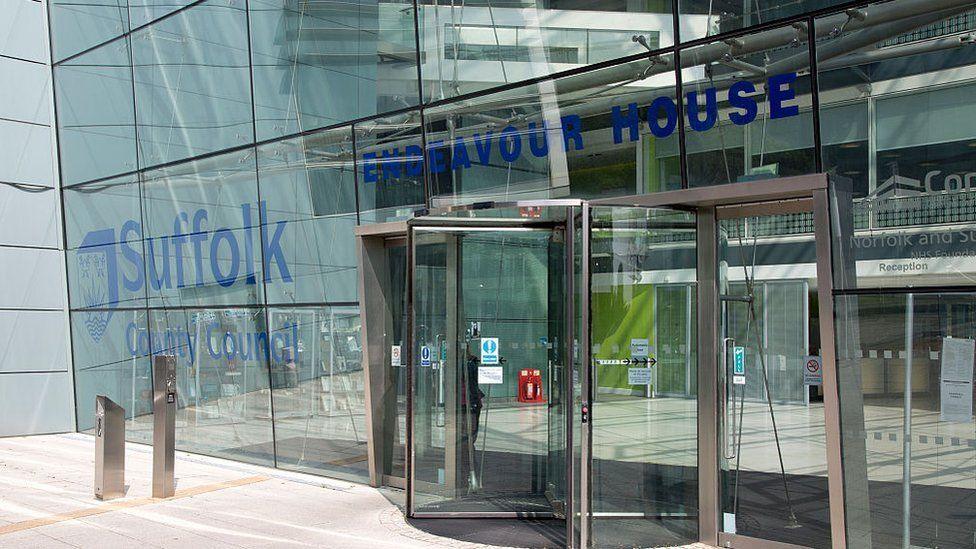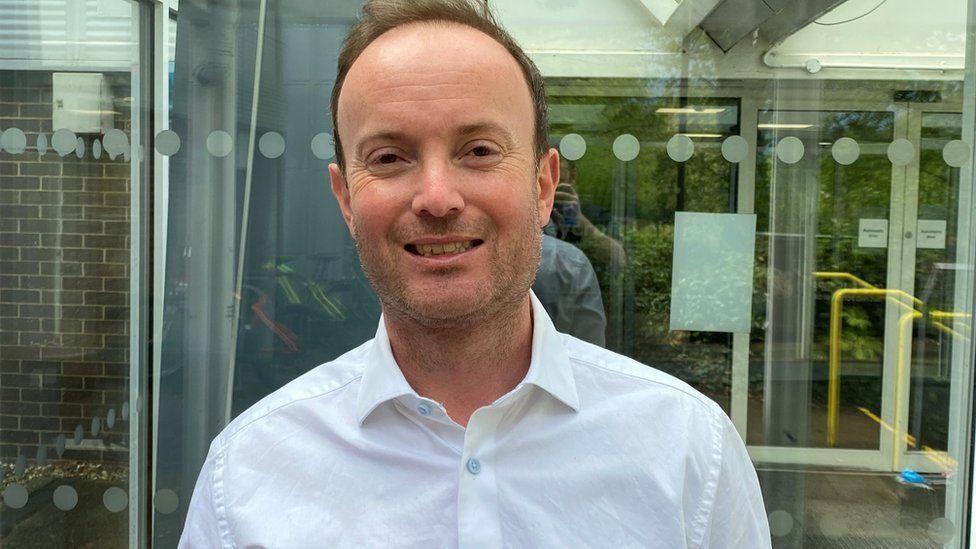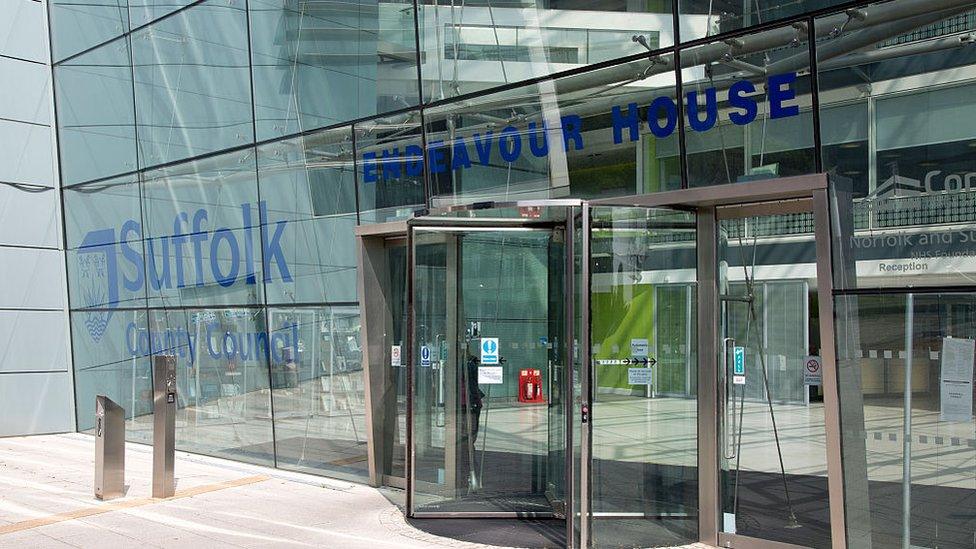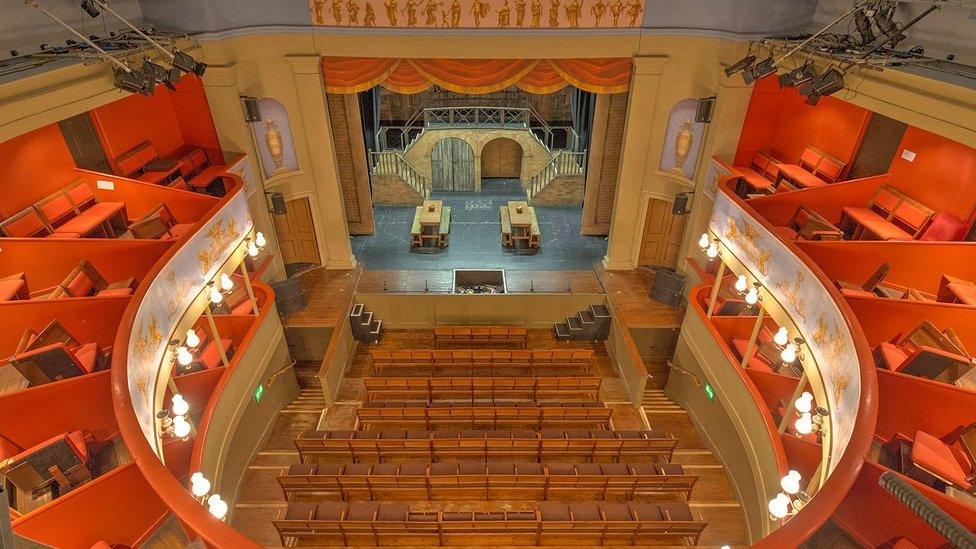Council tax to rise as authority looks to save £65m

Suffolk County Council raised its share of council tax by the maximum amount without triggering a referendum
- Published
A council has agreed to raise its share of council tax as it looks to make savings of £64.7m over the next two years.
Suffolk County Council signed-off its £752m budget for 2024/25 at a meeting on Thursday.
From April, residents would have to pay an extra 4.99% in council tax, which meant a Band D homeowner would pay £74.61 more for the next financial year.
The council said cuts were essential in order to prioritise children and adult care.
The budget received 37 votes for and 17 against after a four hour discussion which included two proposed amendments from opposition groups.
Richard Rout, a Conservative councillor and cabinet member for finance and environment, said increasing council tax had been a tough decision forced by financial pressures such as high inflation and increasing demand.
"This is the most difficult budget we have had to set for many years," he said.
"Balancing this deficit between what we need to spend and what we have to spend has meant looking hard and carefully at our budget, and making difficult decisions."

Mr Rout says "This is a budget that is for all of Suffolk"
The budget included a £717,000 cut to children's centres and a £1m cut to housing revenue support, the Local Democracy Reporting Service said.
However, the council pledged to spend a combined £72.6m on children and adult care services and agreed to use £8.7m of its reserves.
During the discussion, the council's Labour Group proposed an amendment, which included the council using £7.1m of government money to reverse the cuts, instead of using it to help plug the reserves gap.
Sandy Martin, a councillor and deputy leader of the Labour Group, said: "We have to run down our reserves to a certain extent, otherwise we cannot provide the support people need to prevent from requiring more expensive services."
Addressing Labour's amendment, Mr Rout said the proposals would mean bankruptcy by the 2026/27 financial year.
The Labour Group's amendment was defeated with 15 votes for, 48 against, and one abstention.
The Green, Lib Dem, and Independent (GLI) Group's amendment proposed smaller changes which included reversing amendments to arts funding and using government money to fund programs for young people.
The GLI amendment was defeated with 19 votes for and 47 against.
Follow East of England news on Facebook, external, Instagram, external and X, external. Got a story? Email eastofenglandnews@bbc.co.uk, external or WhatsApp us on 0800 169 1830
Related topics
- Published13 September 2023

- Published26 January 2024
